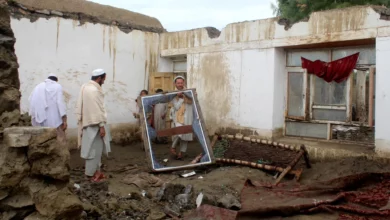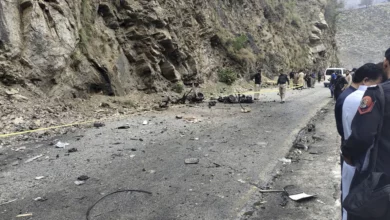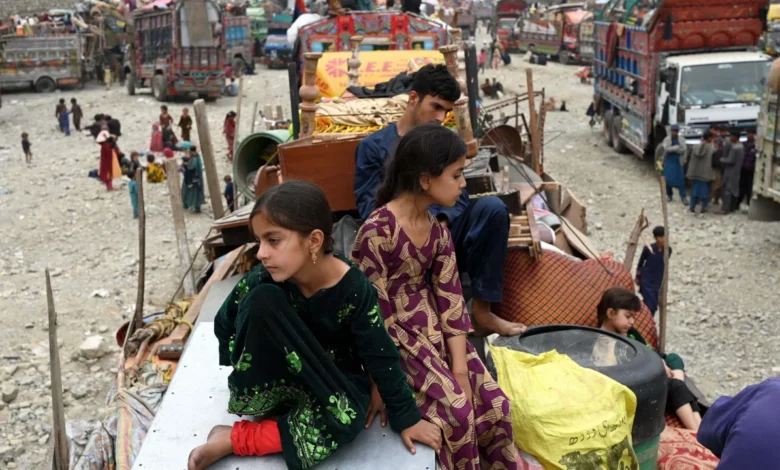
Earlier this week Nasim was leaving the only home he’s ever known, trudging toward Pakistan’s border alongside tens of thousands of fellow Afghan refugees who like him have been given a deadline to depart the country.
“I was born in Pakistan, I’ve lived here for 42 years, I went to school in Pakistan,” said Nasim, who had traveled to the Torkham border crossing from the northern city Peshawar. “I’ve never been to Afghanistan.”
In a move that has upturned countless lives, Pakistan ordered all Afghan refugees and migrants without official identity documents to leave the country by November 1 – and vowed to deport any who remain after that date.
That has left Nasim, who only uses one name, and many others like him facing the grim prospect of a new life under the repressive rule of the Taliban.
Since seizing control of Afghanistan in August 2021, the radical Islamist group has cracked down on women’s rights, closed secondary schools for girls, banned women from attending university or entering many public spaces, and prohibited them from working in most sectors. Under its watch the country has also been grappling with widespread hunger, disease and lack of clean water.
But Nasim and other migrants have little choice but to head back. On Thursday, Pakistani authorities began rounding up those who remained, with more than 100 arrested in the city of Quetta and taken to holding centers.
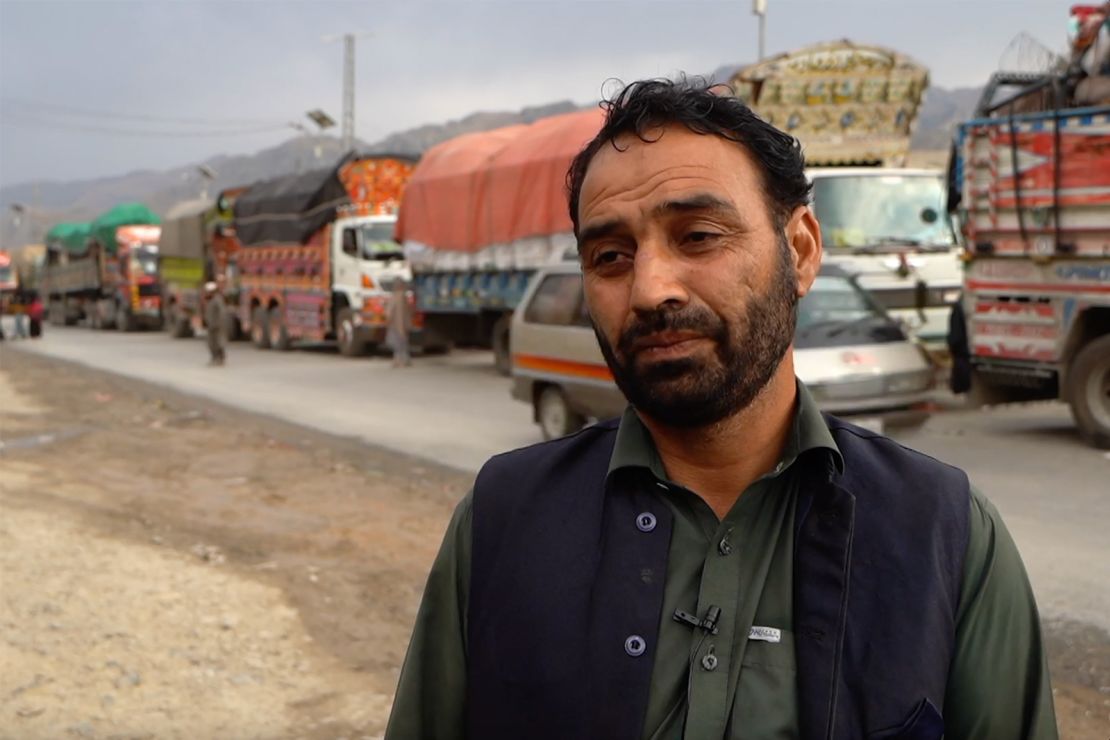
When CNN visited the Torkham border crossing on Wednesday, it was full of trucks piled high with old furniture, suitcases, and mattresses; crowds of migrants huddled on dirt roads, clutching their children and meager belongings.
“We didn’t have money, we left our business, our homes, it was difficult for us to get here. There is no water here,” said Nasim.
“My children have been pulled out of school – the day my children didn’t go to school was like a day of dying for me,” Nasim added. “In Afghanistan there is no school for girls.”
Located at the western edge of the famed Khyber Pass, Torkham has seen generations of Afghans flee and return during the tumultuous four decades of war that have blighted the nation.
Many fled the Soviet invasion in the 1980s and the mujahideen’s long, eventually successful fight back. Others took flight during the civil war that erupted following the Soviet retreat that led to the Taliban’s initial rise.
A new generation went to Pakistan in the aftermath of September 11 attacks, ebbing and flowing during the near two decades of conflict that followed. The Taliban’s return to power in 2021 following the United States’ chaotic withdrawal sparked another wave of some 600,000 refugees.
Now Afghans from all those different generations are being told to go back.
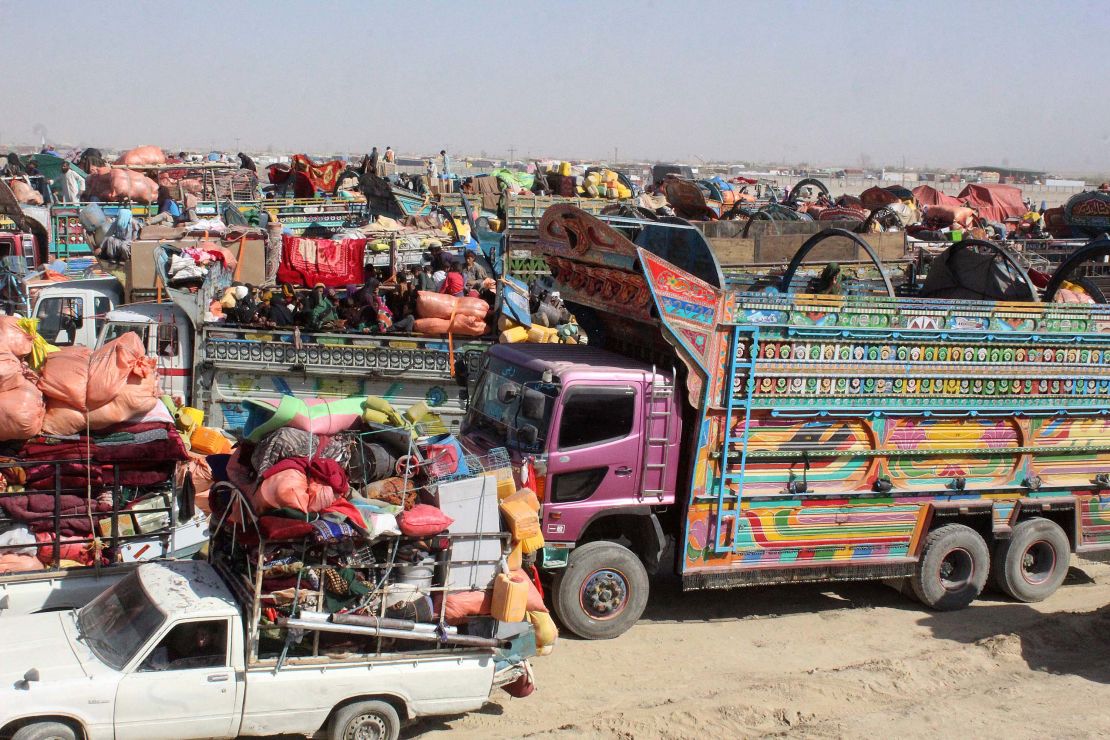
Security concerns
Pakistan’s caretaker Interior Minister Sarfraz Bugti has previously said security concerns were behind the deportation order, claiming that Afghan nationals had carried out 14 of the 24 major terrorist attacks that have taken place in Pakistan this year.
But the order has been criticized by international rights groups both for its massive scope and for the way it is being carried out, with many Afghans alleging mistreatment by Pakistani authorities.
Pakistan is home to more than two million undocumented Afghans. Their presence has long been controversial, and this is not the first time they have faced police crackdowns and threats of deportation. Authorities announced the latest mass deportation movement on October 3, giving migrants less than a month to pack up their lives and leave.
International bodies and human rights groups have warned of a looming humanitarian disaster as they return.
“We urge the Pakistan authorities to suspend forcible returns of Afghan nationals before it is too late to avoid a human rights catastrophe,” said Ravina Shamdasani, spokesperson for the Office of the United Nations High Commissioner for Human Rights (OHCHR), in a statement ahead of the deadline.
“We believe many of those facing deportation will be at grave risk of human rights violations if returned to Afghanistan, including arbitrary arrest and detention, torture, cruel and other inhuman treatment,” she added.
They have also criticized Pakistan for its methods of enforcing the order.
Human Rights Watch claimed on Tuesday the Pakistani government was using “threats, abuse, and detention to coerce Afghan asylum seekers without legal status to return to Afghanistan or face deportation.”
CNN has reached out to Pakistan’s Interior Ministry for comment.
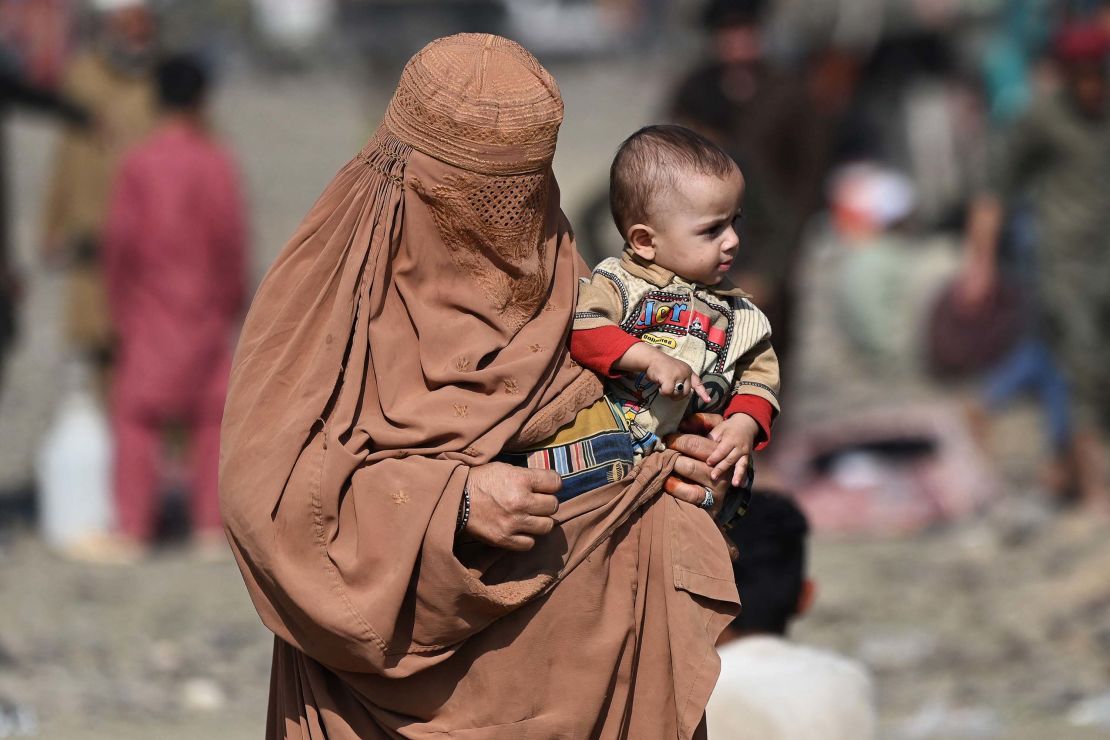
Ghulam Sakhi, a construction worker who lived in Pakistan’s largest city, Karachi, told CNN at the border that “nobody told us to leave, but we’ve seen how Afghans are being treated.”
“Police would catch us and ask us for money, we didn’t have money to pay them,” he said. “I’ve lived here for over 40 years … I’ve grown old in Pakistan, but we’ve been told to go so we’re going.”
Nearly 60,000 Afghans left Pakistan within the first half of October, with the majority citing fear of arrest, according to the UN refugee agency and the International Organization for Migration.
A little over 129,000 have fled from Khyber Pakhtunkhwa as of Thursday, according to the provincial home department. Some 38,000 have crossed through the Chaman border crossing further west in Balochistan.
Raza Muhammad, a father of 10, was one of those preparing to leave through Chaman this week.
“I spent 38 years here, now I am being told to leave, because I don’t have a place here,” he told CNN. “Now I am helpless, there is no other way for me.”
Muhammad said he had toiled for years as a domestic worker and said harassment from local police was routine. He hoped the Taliban would greet those forced out of Pakistan and help them find new jobs.
“There is no other choice for me, we are at the mercy of new people,” he said.
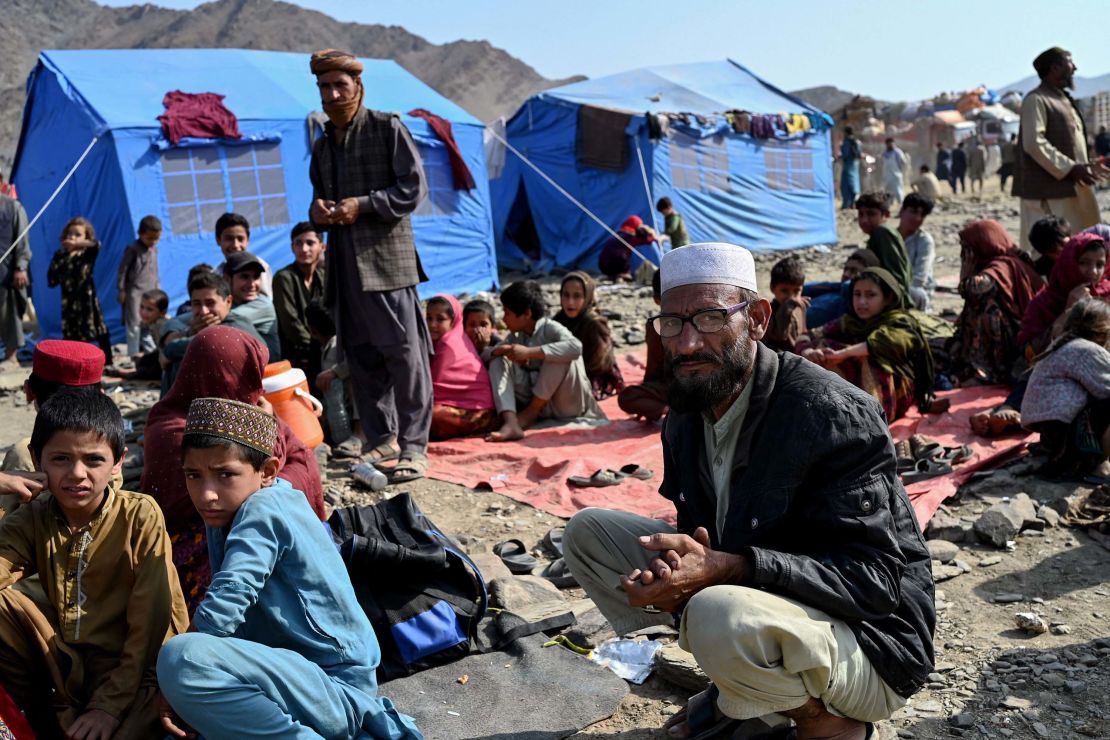
Akhtar Muhammad, 22, said he was born and had lived his whole live in Quetta, Balochistan’s largest city.
“My father has lived here for 40 years, we don’t know how to speak Pashto properly,” he said, referring to the language spoken by the Pashtun tribes that live along the Afghan-Pakistan border.
“We don’t know what kind of environment there will be there (in Afghanistan),” he added.
In a statement on Monday, a spokesperson from Pakistan’s Ministry of Foreign Affairs responded to the OHCHR saying the country “takes its commitments towards protection and safety needs of those in vulnerable situations with utmost seriousness. Our record of the last 40 years in hosting millions of our Afghan brothers and sisters speaks for itself.”
Even the Taliban has been critical, urging Pakistan to “stop the process of one-time deportation of Afghan immigrants,” saying it was “against neighborliness customs and Islamic and humanitarian standards.”
“Afghans have not created problems for the security of the countries in which they live, nor are they involved in instability,” the Taliban said in a statement.
The group said some of its officials had visited the Torkham crossing on Tuesday to oversee the return of migrants from Pakistan and ordered temporary camps to be set up in the area.
Some can’t risk going back
Many Afghan migrants in Pakistan had been awaiting resettlement to other countries like the United States, United Kingdom and Canada, but those hopes are now in limbo as they return instead to the conflict-wracked nation they once fled.
For some, it’s a matter of life and death.
Afghan journalist Zahid Bahand gave up everything to flee with his family after the Taliban took power – selling his car, his home and other possessions to make the escape. Surviving in Pakistan was another challenge as the Pakistani government did not grant their applications for official documents, without which his children can’t go to school, he said.
The harassment by police got so intense he was afraid to leave his residential area. But, he said, returning to Afghanistan would be far worse.
“If I’m deported, there will be lots of problems, the Taliban will kill me,” he said. “I have left everything. I have no home. I was in jail in Afghanistan under the Talibs for three months, there is no place for me there.”
In the first weeks after the 2021 takeover, harrowing accounts emerged of the Taliban detaining and brutally assaulting reporters covering a protest in Kabul – heightening anxiety in a country already dangerous for journalists.
The steady deterioration of human rights under the Taliban since its return to power have only confirmed the worst fears of many Afghans.
The Islamist group has since ordered judges to impose a strict interpretation of Sharia law that includes public executions, amputations and flogging.
The prospect of returning to Afghanistan, and the pressures of providing for his children in Pakistan as the walls close in, have left Bahand too afraid to sleep.
“I am ashamed, what kind of man am I that I can’t help my family?” he said, visibly emotional. “I die every minute … My fault is that I’m a human? That I’m an Afghan, that I’m a journalist?”

